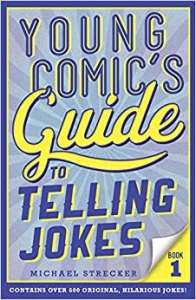Blogging the Way things Used to Be
Whether or not you’re into home remodeling and décor, the new “Reveal” magazine by two of my own favorite reality show personalities, Drew and Jonathan Scott, is a great source of ideas for blog content writers. Last week in this Say It For You blog, I noted that the brothers had offered no fewer than five full articles about, of all things, tile, each one informative and imaginative.
Even the advertisements are uniquely creative in “Reveal”, I discovered to my delight. A painting of a 19th century woodsman sitting in his shop with his dog’s face turned towards him takes up the bulk of the page, with an art-museum-style plaque that reads “Things dogs used to smell- their owners”. At the bottom of the page is a second plaque reading “Things dogs smell now: chicken”, positioned over a box of Cesar dog food.
“When it comes to business, trends come and go. This is particularly prevalent when it comes to marketing strategies,” Metova posits, noting that as technology becomes increasingly available to the general public, people are more receptive to marketing tactics when the material is formatted directly for them.
One really important point Metova stresses is that today, product comparison is an outdated and unnecessary marketing strategy. With trust in U.S. companies in general having dropped to 50% this year, now is not a great time for brands to be making lofty claims or taking potshots at competitors. Instead, Metova says, now is the time to be building trust and relationships.
This takes me back to the “Reveal” magazine ad for dog food. While making comparisons with competitors’ products and services may be passé, comparisons of “now” with “then” always hit the spot. Sharing memories of the “good old times” that weren’t really so good in terms of efficiency and convenience, you have the ability to share with blog readers a sense of look-how-far-we’ve-come togetherness.
The Business Dictionary definition of the term “product innovation” is “the development and market introduction of a good or service that is:
- new
- redesigned
- substantially improved
What that means is that if you have taken something already there and made it better, that “innovation” is the most powerful thing you have to share in your blog marketing. After all, Drew and Jonathan Scott didn’t “invent” tile, and the Cesar company didn’t invent dog food. It’s probably true, we tell Say It For You clients wondering how they can come up with new ways to present their products and services through content marketing, that you can’t claim to have “invented” those products or services “from scratch”!
On the other hand, history-of-our-company background stories have a humanizing effect, engaging readers and creating feelings of empathy and admiration for the business owners or professional practitioners who overcame adversity. Most important, tracing the “then” calls attention to the modern solutions that grew out of those past attempts and failures.
Blogging “the way things used to be” is a great way to help prospects and clients savor the way things are!






Follow us online!